
Welcome to The Regenerators.
Easy solutions to protect the planet
We all want to do our bit for the planet, but it can feel like there are only so many hours in the day – and finding the time needed to make a real difference is a challenge in itself.
Yet there are many sustainable hacks that you can easily work into everyday life, even when you’re busy. Here’s six no-effort solutions to get you started.
Lights, (no) camera, action – turn off your video function

Video calls are more popular than ever and have been so important to help stay in touch with friends, family and loved ones. They’ve also made it much easier for people to work from home and still remain in contact as a team. But sometimes it’s nice to have a break from the screen time of multiple video calls… which also gives the planet a rest, too.
Video calling can have a negative impact on the environment due to how data is stored and transferred around the world. Research has found that an hour of video conferencing emits up to 1kg of carbon dioxide and uses up to 12 litres of water. But leaving your camera off during that hour long video call could reduce your carbon footprint by 96%.
As well as thinking about turning your video function off during calls, streaming your favourite programmes in standard definition (SD) rather than high definition (HD) can achieve a reduction of 86% too.

Do less laundry
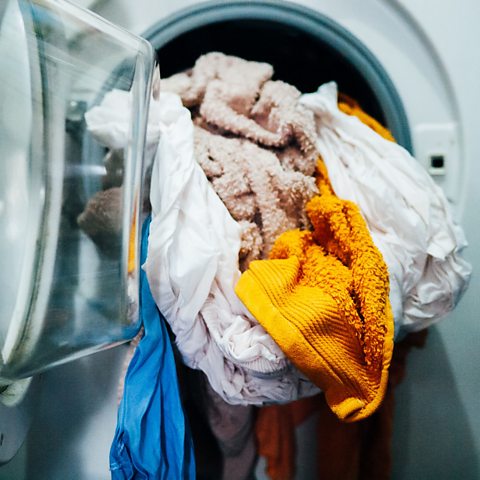
Parents across the United Kingdom, rejoice – it’s true that doing less laundry is great for the environment and will make your clothes last longer! To ensure you’re doing your bit as well as making life easier, try to wear clothes two or three times before washing them. The trick here is to hang up or air your clothes, which will keep them fresher for longer.
To avoid extra washes, you could hand treat stains with vinegar and hot water rather than throwing your favourite jumper in the laundry basket after only wearing it once. Nine out of ten pieces of clothing end up in landfill long before they should, often because over-washing has caused the colour to fade (once it’s gone it’s gone), shrinkage and misshaping.
If doing less laundry is not an option (we know it’s not always that easy), then why not put your clothes on a cold wash for a shorter cycle? 90% of the energy used in washing your clothes comes from heating the water. A cold wash cycle is gentler on your favourite outfits, saves energy and sheds fewer microfibres into the waste water.

Take shorter showers

First thing in the morning or after a long day at work – there’s nothing more relaxing than a well-earned soak in the shower. Yet it’s worth bearing in mind that the amount of time you spend freshening yourself up has a direct impact on the environment.
The average shower lasts eight minutes and uses 16 gallons of water. If you cut down your shower by one minute per day, you could save around 270 litres of water per month – the equivalent of over 1,000 glasses of tap water being poured down the sink.
Why not put on one of your favourite songs on that comes in under four minutes and time yourself to take a shower before it ends. Taking a shorter and cooler shower not only saves you time and energy, but it means you could be one minute less late (or early!) for work.

Think about food waste
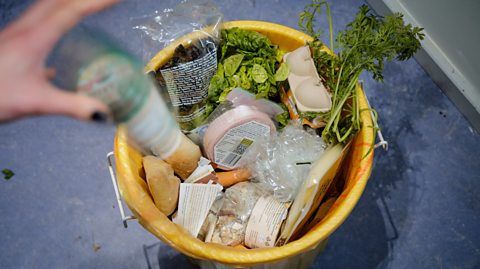
It's been estimated by the Food and Agriculture Organisation that if food waste were a country, it would be the third highest emitter of greenhouse gases after the USA and China. So whether it’s a couple of rogue chips, pieces of broccoli or extra carrots you couldn’t quite finish, err on the side of caution when plating up, with one eye on the environmental impact that wasting food can have.
However, it can be hard to avoid food waste completely. If you do have leftover food, see if you can freeze it for another meal (like a stir fry or fried rice) or make sure it goes into a compost bin. Buying only what you need can also help to reduce the amount of food you throw away. Better yet, why not try growing your own herbs, fruit or vegetables?

The milkman is reborn
A milkman in the twenty-first century? It might seem a bit 80s, but striking up a bond with your local milk deliverer in their eco-friendly milk float can be your way of doing your bit for the environment.
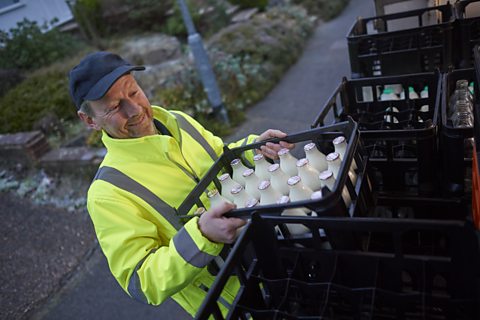
Glass bottles of milk are a more sustainable option when it comes to buying the white stuff, with the rinse and return policy enabling the bottles to be used over and over again. In 2019, 70,000 new customers in the UK signed up to have their milk delivered, highlighting an eco-friendly revival of sorts. A true piece of Future Nostalgia, as Dua Lipa would say.
Rediscover your wardrobe
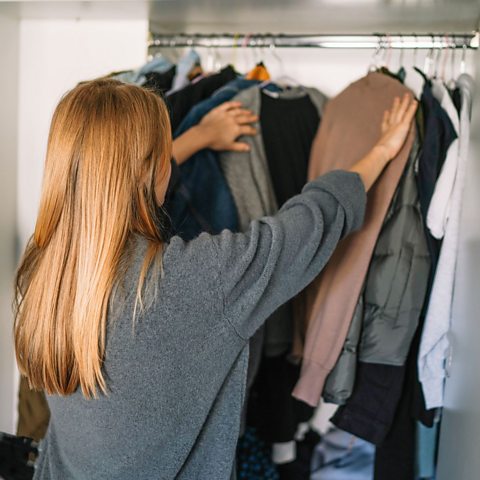
Take some time to organise your wardrobe and look at what you have so you can celebrate the clothes you love. According to sustainability ambassador Venetia La Manna, “If you can actually see what’s in your wardrobe, you’re much more likely to be innovative when styling outfits, meaning you are much less likely to buy new clothes”.
With the clothes you no longer want, bag them up and take them to your local charity shop. One person’s old clothes are another person’s vintage fashion attire.

Make a difference
Discover more about the planet and how to protect it with the Â鶹Éç.
How to fight climate change from your kitchen
THE REGENERATORS
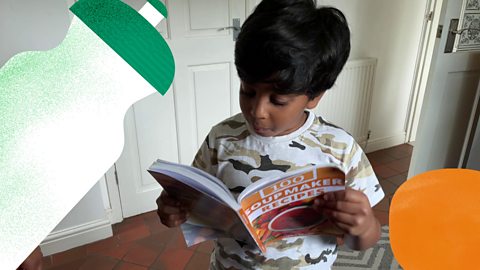
Simple hacks to slash your energy use
THE REGENERATORS

Konnie Huq on living a sustainable life
THE REGENERATORS

Return to the homepage
Back to The Regenerators
Â鶹Éç BITESIZE
